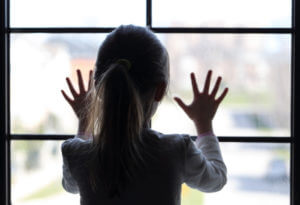For Immediate Release:
Dateline: West Palm Beach,
FL
Thursday, September 18, 2025
Child-Centered Divorcehttps://www.childcentereddivorce.com/A Support Network for ParentsWed, 17 Sep 2025 19:48:03 +0000en-UShourly 1 https://wordpress.org/?v=6.8.2- 5 Tips to Help Children Cope With Divorce!https://www.childcentereddivorce.com/5-tips-to-help-children-cope-with-divorce/https://www.childcentereddivorce.com/5-tips-to-help-children-cope-with-divorce/#respondWed, 17 Sep 2025 19:43:28 +0000https://www.childcentereddivorce.com/?p=6758B Rosalind Sedacca, CDC Divorce need not wound and scar your children if you put their emotional and psychological needs first when making crucial decisions. Some parents don’t understand that every decision they make regarding their divorce will affect the well-being of their children in countless ways. The emotional scars are not only harder to […]
The post 5 Tips to Help Children Cope With Divorce! appeared first on Child-Centered Divorce. ]]>B Communication with your child is essential. Rosalind Sedacca, CDC Divorce need not wound and scar your children if you put their emotional and psychological needs first when making crucial decisions. Some parents don’t understand that every decision they make regarding their divorce will affect the well-being of their children in countless ways. The emotional scars are not only harder to see, they’re also much harder to erase. Here are five keys to helping your children cope with and even thrive after divorce. - Remind them this is not their fault.
Children tend to blame themselves for divorce, no matter how bad Mom and Dad’s relationship has been. The younger the child, the more likely this is so. Sit down together and talk to your children, emphasizing that they are in no way at fault. You can say something like: “Mom and Dad don’t agree about certain key issues and that has created conflict. Even when some of the issues are about you, it does not mean you are to blame. You are an innocent child who we both love. Sadly, Mom and Dad disagree about certain important issues — but not about our love for you. You are not in any way at fault.” - Focus on change — not on blame.
Divorce is all about change within the family structure. Often those changes can be beneficial and create a more peaceful environment for your children. Never burden them with adult information and judgments. Focus instead on the fact that change is an inevitable part of life and not necessarily bad. Let your children see that everything in life keeps changing. “You grow bigger every year. Seasons change, clothing styles change, your school classes change. Sometimes it takes a while to get used to changes, like when you get a new teacher or try a new sport. In time you may come to like these new changes. Let’s give it a try.” - Respect your child’s other parent.
When you belittle, put down or in any way disrespect your ex – regardless how justified it may feel – it hurts your children in deep and long-lasting ways. Children innately love both their parents and feel a connection to them. When you insult their other parent it creates confusion, guilt, sadness, insecurity and low self-esteem in your children. Instead, remind them that Mom and Dad will always be their parents and will always love them. No one will replace Mom or Dad either. “We will both always love you and be there for you, no matter where we live or how things should change.” Then strive to do the right thing on their behalf. - Let your children continue to be children.
While it may sometimes be tempting, never confide adult content to your children. They are not psychologically prepared to handle the emotional complexity. Save venting for trusted friends, a divorce counselor or support group. Also never ask your children to spy, act as messengers between both parents or provide inappropriate details about the other parent’s home life. Again, this pressure’s them in many ways – none of which are positive. It is not their place to assume adult responsibilities or help you to find evidence against your ex. - Make decisions through the eyes of your child.
Before making any decisions regarding divorce issues, think about the consequences for your children. Ask yourself, what will they say to me about this when they are grown adults? Will they thank me for the way I handled the divorce – or be angry and resentful about my attitude and behavior? The choices you make will affect your children for years and decades to come. For their sake, take the high road and be a role model they will want to emulate. You’ll be helping your children better cope with divorce and have the happy childhood they deserve! * * * * Rosalind Sedacca, CDC is a Divorce & Parenting Coach, founder of the Child-Centered Divorce Network and author of How Do I Tell the Kids about the Divorce? A Create-a-Storybook Guide to Preparing Your Children — with Love! Her innovative approach guides parents in creating a personal family storybook, using fill-in-the-blank templates, family history and photos, as an effective way to break the news with optimum results. For Rosalind’s free ebook on Post-Divorce Parenting and other valuable resources visit http://www.childcentereddivorce.com. © Rosalind Sedacca All rights reserved. The post 5 Tips to Help Children Cope With Divorce! appeared first on Child-Centered Divorce. ]]>https://www.childcentereddivorce.com/5-tips-to-help-children-cope-with-divorce/feed/0 - How to Rebuild Your Self Esteem After Divorcehttps://www.childcentereddivorce.com/how-to-rebuild-your-self-esteem-after-divorce-2/https://www.childcentereddivorce.com/how-to-rebuild-your-self-esteem-after-divorce-2/#respondWed, 03 Sep 2025 19:37:50 +0000https://www.childcentereddivorce.com/?p=6753By Rosalind Sedacca, CC Divorce can be devastating on many levels. In addition to the financial and stress toll on both partners as well as the children, it can easily wreak havoc on one’s self-esteem. Even those who initiate the divorce process can experience tremendous emotional turmoil resulting in guilt, anxiety and insecurity. Those who […]
The post How to Rebuild Your Self Esteem After Divorce appeared first on Child-Centered Divorce. ]]> By Rosalind Sedacca, CC By Rosalind Sedacca, CC
Divorce can be devastating on many levels. In addition to the financial and stress toll on both partners as well as the children, it can easily wreak havoc on one’s self-esteem. Even those who initiate the divorce process can experience tremendous emotional turmoil resulting in guilt, anxiety and insecurity. Those who were not expecting or in any way desiring the break-up can come away feeling psychologically battered, confused and questioning their own worth. It’s hard to tackle these burdens alone. A support group, private coach or professional counselor will be very valuable. These resource will remind you that 1) you are not alone in your experiences or feelings and 2) there is a brighter future ahead for you – if you take proactive steps in that direction. While family and friends are usually very well-intentioned, their support may not always be helpful for you. They have their own agendas, perspectives and values about marriage, family and divorce. What you most need at this difficult time is a support system that is dispassionate, compassionate and knowledgeable. A system focused on responsible behaviors that will move you into a more positive chapter in your life. Here are a few suggestions to guide you in boosting your self-esteem during the divorce and its aftermath. Be committed to releasing the past: If you stay stuck in reliving and clinging to what no longer is your reality, you will not open the door to the next chapter in your life. There will be better, brighter days ahead – if you allow that awareness into your experience. Make space in your life for new friends, relationships, career options and fulfilling activities. Look for and expect new opportunities in new places. See the future as a positive beginning for you and your children. You’ll be pleasantly surprised about what you can create when you anticipate good things ahead. Choose your company wisely: We can’t easily change other people, but we can change the people we associate with. If your social group isn’t supportive of you, or tends to wallow in self-pity, realize you have a choice in your life about who you spend time with. Choose instead, aware, introspective people who accept responsibility for their own behavior and proactively move ahead in transforming their lives. Move out of the blame game and put yourself in the company of positive people with high self-esteem. They are more likely to appreciate you, with all your assets and baggage, as the wonderful person you are. You may find these people where you least expect them. So step out of your comfort zone – and be receptive to new friends and new experiences. Be Flexible about Change Life is always filled with changes, not just during divorce. Get comfortable with the unknowns ahead and accept that change is inevitable. While dark periods are tough to handle, realize they too will fall away and be replaced with better days and new relationships. Listen to your self-talk. Let go of limiting beliefs about yourself. When you catch yourself in doubt, fear or put-down language, become aware of that message and consciously refute it. I am a worthy parent. I can attract a new loving partner. I deserve to be happy in my relationships. My children love me and know how much I love them. Determine what you want to change about yourself from within and relax about controlling circumstances around you. When you come to accept the reality of changes in your life, you’ll feel more at peace with yourself and those around you. Life is all about choices and decisions. Use your divorce as a catalyst for positive change. Choose to be the person and parent you most want to be. Then watch how circumstances around you settle into place more harmoniously than you ever expected. * * *
Rosalind Sedacca, CDC is a Divorce & Co-Parenting Coach and founder of the Child-Centered Divorcr Network. She’s an author and has developed several courses on divorce and co-paremting skills to protect the children you love. For free articles, interviews, programs, coaching and other valuable resources on child-centered divorce, go to: www.childcentereddivorce.com. The post How to Rebuild Your Self Esteem After Divorce appeared first on Child-Centered Divorce. ]]> https://www.childcentereddivorce.com/how-to-rebuild-your-self-esteem-after-divorce-2/feed/0- How To Nurture the Grandparent-Grandchild Love Bond Despite Divorcehttps://www.childcentereddivorce.com/how-to-nurture-the-grandparent-grandchild-love-bond-despite-divorce/https://www.childcentereddivorce.com/how-to-nurture-the-grandparent-grandchild-love-bond-despite-divorce/#respondTue, 19 Aug 2025 18:32:24 +0000https://www.childcentereddivorce.com/?p=6738By Rosalind Sedacca, CDC When divorce enters a family, everyone is affected. Sometimes the impact on grandparents is overlooked amidst the turmoil involving parents and children. Sadly, the effect can be devastating for grandparents who want to help and also stay in the lives of the children they love. Grandparents often ask me, “How can […]
The post How To Nurture the Grandparent-Grandchild Love Bond Despite Divorce appeared first on Child-Centered Divorce. ]]> By Rosalind Sedacca, CDC By Rosalind Sedacca, CDCWhen divorce enters a family, everyone is affected. Sometimes the impact on grandparents is overlooked amidst the turmoil involving parents and children. Sadly, the effect can be devastating for grandparents who want to help and also stay in the lives of the children they love. Grandparents often ask me, “How can I support stay close to my grandkids when we are geographically separated?” You do that by maintaining and strengthening the relationship you already have. Below are some ways you can stay in the lives of your grandchildren despite the distance between you. Keep in mind the technology gap may be real, but you don’t have to connect in the same way they play with their friends. Remind them you do things differently in some ways, and invite them to try things at your pace while you try to adapt to theirs. · Create a special Journal of activities that you can share with your grandchildren. This might be a travelogue of places you’ve explored, people you’ve visited, movies you saw and other activities you’ve participated in. You can send them souvenirs from each place as something to show and talk about on your next phone call or video visit. These may include photos and videos, restaurant menus, tee shirts, colorful brochures, post-cards, hats, pens, and other novelties. · Request the same from them. Let them send you a story about places they visited, parties they attended, school trips, weekend activities or other “adventures.” · Send an email or text message “of the week” to the kids with a theme: such as the Staying Warm Tip of the Week, Favorite Meal or Dessert of the Week, Pet Trick of the Week, quote from a Favorite Book you’re both reading that week, Joke of the Week, etc. – just to keep in touch. · Volunteer your time at a hospital, toy or food distribution drive or other event to help needy children or animals in your community. That way you feel valued while interacting with and bringing joy to other children. Then tell the grandchildren about your activities. · Make plans to see the same movie or streaming TV show as your grandkids on the same day and then schedule a call to discuss the movie together and share the experience in your own way. · Do the same with chapters of a book. Plan scheduled calls in advance to discuss the characters and share your opinions about their situations. · Make a weekly or monthly video catching up on your life to send to the grandkids. Nothing fancy required. Have things to show on the video such as playing with your dog, a new hat you’ve bought, a new recipe you’ve tried, a new flower you’ve planted in the garden, etc. Consistency, flexibility and unconditional love go a long way toward strengthening your bond with your grandchildren. Be there for them. Be understanding when they don’t always respond in the ways you desire or expect. Be aware of the transitions children make as they age and enter different stages of growth and interests. Take advantage of all the blessings today’s technology provides for maintaining communication. It will keep your relationship with your grandkids thriving throughout their lives! Extra tip: Don’t bring up divorce unless your grandchild does first. Strive to develop a safe, trusting, no stress connection, especially early on. If they want to to discuss heavy feelings and ask questions, be there as a support system. Ask their parents for permission to talk further and listen to the child. This is a process that demands baby steps and mutual trust all around. If the parents don’t appreciate your involvement, share your love and nurturing skills and move on to to other topics. * * * Rosalind Sedacca, CDC is the founder of the Child-Centered Divorce Network, a Divorce & Co-Parenting Coach and author of the acclaimed ebook, How Do I Tell the Kids About the Divorce? A Create-a-Storybook Guide to Preparing Your Children — With Love! To get her advice, coaching services, expert interviews, programs, e-courses and other valuable resources on divorce and co-parenting, visit: https://www.childcentereddivorce.com | | · |
|
|
| |
The post How To Nurture the Grandparent-Grandchild Love Bond Despite Divorce appeared first on Child-Centered Divorce.
]]>
https://www.childcentereddivorce.com/how-to-nurture-the-grandparent-grandchild-love-bond-despite-divorce/feed/0- Divorce and Parenting: Teaching Valuable Life Lessons To Your Childrenhttps://www.childcentereddivorce.com/divorce-and-parenting-teaching-valuable-life-lessons-to-your-children-3/Sun, 27 Jul 2025 21:29:47 +0000https://www.childcentereddivorce.com/?p=6730By Rosalind Sedacca, CDC As a divorced parent, what lessons and behaviors are you modeling for your children? The messages you convey will influence your children into adulthood. Here’s valuable advice on leaving a positive imprint as role models for your innocent children during and after divorce. Bad things can happen to good people. Divorce […]
The post Divorce and Parenting: Teaching Valuable Life Lessons To Your Children appeared first on Child-Centered Divorce.
]]>By Rosalind Sedacca, CDC
Your behavior helps children cope with divorce
As a divorced parent, what lessons and behaviors are you modeling for your children?
The messages you convey will influence your children into adulthood. Here’s valuable advice on leaving a positive imprint as role models for your innocent children during and after divorce.
Bad things can happen to good people. Divorce is a prime example. Good people get divorced. Responsible people who are loving parents get caught in the decision to end a loveless or deceitful marriage.
The consequences of that decision can either be life affirming or destroying. It all depends on how each parent approaches this transition. Parents who are blinded by blame and anger are not likely to learn much through the experience. They see their former spouse as the total problem in their life. Consequently, they believe that getting rid of that problem through divorce will bring ultimate resolution. These parents are often self-righteous about the subject. They give little thought to what part they may have played in the dissolution of the marriage.
Parents at this level of awareness are not looking to grow through the divorce process. They are more likely to ultimately find another partner with whom they have similar challenges or battles. Then, once again, they find themselves caught in the pain of an unhappy relationship.
Take the Self-Reflective Path For Meaningful Insights and Growth
There are others, however, for whom divorce can be a threshold into greater self-understanding and reflection. These parents don’t want to repeat the same mistake. They want to be fully aware of any part they played in the failure of the marriage. Self-reflective people ask themselves questions and search within – often with the assistance of a professional counselor or coach. It helps them understand what they did or did not do and how it affected the connection with their spouse.
These introspective parents consider how they might have behaved differently in certain circumstances. They question their motives and actions to make sure they came from a place of clarity and good intentions. They replay difficult periods within the marriage to see what they can learn, improve, let go of or accept. They take responsibility for their behaviors and apologize for those that were counter-productive. They also forgive themselves for errors made in the past. And, often, can look toward being able to forgive their spouse in the same light.
Being a Role Model and Earning Respect as a Parent
These parents are honest with their children when discussing the divorce – to the age-appropriate degree that their children can understand.They remind their children that both Mom and Dad still, and always will, love them. And they remember their former spouse will always be a parent to their children. So they speak about them with respect around the kids.
By applying what they learned from the dissolved marriage to their future relationships, these mature adults start a momentum. It moves them to recreate new lives in a better, more fulfilling way. From this perspective, they see their former marriage as not a mistake. Instead it becomes a stepping-stone to a brighter future – both for themselves and for their children. When you choose to learn from your life lessons, they were never experienced in vain. Isn’t this a lesson you want to teach your children?
*** *** ***
Rosalind Sedacca, CDC is a Divorce & Co-Parenting Coach, Founder of the Child-Centered Divorce Network and author of How Do I Tell the Kids about the Divorce? A Create-a-Storybook Guide To Preparing Your Children – With Love! To learn more about her internationally acclaimed ebook, visit http://www.childcentereddivorce.com/kids. For her free ebook on Post-Divorce Parenting, online coaching services and other valuable resources for parents, visit: www.childcentereddivorce.com.
The post Divorce and Parenting: Teaching Valuable Life Lessons To Your Children appeared first on Child-Centered Divorce.
]]> - Tips and Tools To Effectively Talk Divorce With Your Childrenhttps://www.childcentereddivorce.com/tips-and-tools-to-effectively-talk-divorce-with-your-children/Wed, 25 Jun 2025 13:59:53 +0000https://www.childcentereddivorce.com/?p=6714By Rosalind Sedacca, CDC Facing divorce and stymied about how to tell your kids? Worried about how it will affect them? Hurting them with the news? What to say and not say? What they will do? How much to confide? Well, you’re not alone. There’s no doubt this might be one of the most difficult […]
The post Tips and Tools To Effectively Talk Divorce With Your Children appeared first on Child-Centered Divorce.
]]>By Rosalind Sedacca, CDC
Facing divorce and stymied about how to tell your kids? Worried about how it will affect them? Hurting them with the news? What to say and not say? What they will do? How much to confide?
Well, you’re not alone.
There’s no doubt this might be one of the most difficult conversations you’ll ever have. Despite that, you must be prepared.
Here are the five mistakes most commonly made by parents. Be sure you don’t add stress to your children’s lives by making these errors.
- Exposing your children to parental conflict or fighting. Studies show that this does more damage to children than any other factor in their lives – whether in a divorced or still married family. Keep your battles away from your child’s eyes and ears to ensure they still get to have the childhood they deserve.
- Bad-mouthing their other parent. Any display of disrespectful behavior and remarks about their other parent is hurtful to children. They may not tell you directly, but they feel the pain. Kids innately love both parents and want to protect them. Your voice tone, body language, snide comments, etc. add to your child’s stress at an already difficult time.
- Making your children choose between their parents. Don’t ask your children to make decisions or judgments regarding the parents they love. This puts enormous pressure on them. It’s your place to make all parenting decisions. Children feel guilty, anxious and confused when faced with such emotionally-charged choices.
- Forgetting to emphasize that your children are innocent. Often children blame themselves for their parent’s failed marriage. It is important to remind the kids often that they played no part in the decision to divorce. They are not to blame, even when their parents are fighting about them.
- Turning your children into confidants or therapists. Adults have trouble handling the emotions connected to divorce issues. Imagine how children feel when they are told biased or inappropriate information. It robs them of their childhood! Let your friends be your sounding board – not your children. Better yet, reach out to divorce experts for support.
The good news is lots of help is available to you from qualified professionals. For a more peaceful divorce, try mediation or an attorney specializing in the Amicable or Collaborative Divorce model. You can also speak to Divorce Coaches, Family Therapists and school Guidance Counselors. In addition, the Child-Centered Divorce Network has free and low-cost ebooks, e-courses and other valuable resources on telling kids about divorce, co-parenting successfully and moving on with your life.
Some highly recommended Tools include:
How Do I Tell the Kids About the Divorce? A Create-a-Storybook Guide To Preparing Your Children — With Love
What makes this Internationally-acclaimed ebook, written by Rosalind Sedacca, CDC unique, is that she doesn’t just tell parents what to say. She says it for you! Rosalind uses fill-in-the-blank age-appropriate templates to show parents how to create a storybook sharing family photos and history as a successful way to have the tough break-the-news conversation.
The innovative storybook approach gets parents on the right track for successful co-parenting to ensure the wellbeing of their children in the months and years to come – starting with that first crucial conversation with their children. It covers:
- When and how to break the divorce news to minimize anxiety
- The 6 key messages every child needs to hear
- How to follow-up after the divorce conversation to protect your child
- Dangerous mistakes to avoid during and long after your divorce
- How to co-parent effectively even if you don’t like your Ex
https://www.childcentereddivorce.com/coaching-programs/kids/
When Alcohol Is a Factor: A Tool to Help Protect Your Children
Sometimes, the divorce conversation becomes even more complex when alcohol misuse plays a role in the separation. In those cases, children may already feel confused or fearful about a parent’s behavior. Reassuring your children that steps are being taken to ensure their safety and stability is key.
One tool that can help rebuild trust and create a safer co-parenting environment is Soberlink. Soberlink’s remote alcohol monitoring system provides a discreet court-admissible way to document sobriety and promote accountability. With Soberlink, a parent tests at scheduled times throughout the day, their identity is confirmed, and instant results are sent to your phone. This kind of transparency can offer peace of mind to co-parents, legal professionals, and most importantly, your children.
Soberlink’s advanced features include:
o Discreet and Portable Breathalyzer
o Instant Notification System
o Intuitive Software
o Built-In Facial Recognition & Tamper Sensors
o Expert In-House Support
By helping to maintain child safety while supporting a parent and sobriety, Soberlink can play a meaningful role in a healthy post-divorce dynamic, especially if alcohol was a contributing factor in the breakup.
https://www.soberlink.com/divorce/family-law
Anger Management for Co-Parents 8-Hour Course
Managing your anger is always important. When you’re a divorced parent, it’s crucially important. Unmanaged anger can destroy your life and the life of others around you.
This easy-to-use course is designed to give you the practical skills and strategies you need for managing your stress and anger. Co-created by Divorce Coach Rosalind Sedacca, CDC and psychotherapist Amy Sherman, LMHC, the course integrates material to read, short videos to watch, exercises to try, quizzes, and more.
Discover new and better ways to:
o Set limits and respond when you are angry
o Cope with difficult emotions, feelings and experiences
o Handle people who push your buttons and overstep their boundaries
o Identify your “red flag” warning signs in advance
o Communicate with your co-parent and children when you’re upset
o Behave when you feel your rage mounting
o Co-parent more effectively without abusing your power
The steps, suggestions, and advice will help you be more empathic toward your family and others. It will also guide you toward choosing more assertive and less aggressive behaviors. And you’ll learn more successful co-parenting skills to make home life and custody arrangements easier for the children in your care.
https://www.AngerConflictPrograms.com
Don’t underestimate how seriously your children will be impacted by the divorce news. Speak gently, with compassion and love. Avoid the pitfalls that make a tough conversation even tougher on your kids. With care and consideration, you can set the stage for a positive future for both you and the children you love.
* * *
Rosalind Sedacca, is a Divorce & Co-Parenting Coach and founder of the Child-Centered Divorce Network. She has created numerous books, courses and programs to help parents make the best decisions before, during and long after divorce. To get Rosalind’s free ebook about Post-Divorce Parenting, as well as her coaching services and other valuable resources on divorce and parenting issues, visit: www.childcentereddivorce.com.
© Rosalind Sedacca All rights reserved.
The post Tips and Tools To Effectively Talk Divorce With Your Children appeared first on Child-Centered Divorce.
]]> - Dating After Divorce: Use Caution When Telling Your Kids!https://www.childcentereddivorce.com/dating-after-divorce-use-caution-when-telling-your-kids/Sat, 31 May 2025 21:31:04 +0000https://www.childcentereddivorce.com/?p=6706By Rosalind Sedacca, CDC We all know divorce creates havoc in any family’s life, especially when children are involved. Moving on after divorce can also be challenging. It’s a time to be very gentle, both with yourself as well as with your children. Chances are, you made a considerable emotional investment in your marriage. Having […]
The post Dating After Divorce: Use Caution When Telling Your Kids! appeared first on Child-Centered Divorce.
]]>
Attentive communication with your child is essential.
By Rosalind Sedacca, CDC
We all know divorce creates havoc in any family’s life, especially
when children are involved. Moving on after divorce can also be
challenging. It’s a time to be very gentle, both with yourself as
well as with your children.
Chances are, you made a considerable emotional investment in your
marriage. Having seen that relationship end can make you insecure
about facing new relationships ahead. So take the time to
go within, learn from your mistakes, and understand the lessons from
your marriage. That will help you determine new ways to approach future
relationships. In time you will feel ready to step back out
into the dating world again. Then you face the challenge of
breaking the news to your children.
Be Mindful, Sensitive and Empathic!
Of course the age of your children will play a big part in how to
talk to them about your starting to date. The rapport you have with
them and closeness within your own relationship with the kids will
also play a part in this difficult conversation.
Remember, your children are smarter than you think. They can pick
up on your emotions and when you’re telling untruths. It’s best to
be honest about your feelings regarding bringing another potential
partner into your life. But be very sensitive about their emotions
on this topic.
Let your children know you’re healing, feeling better about
yourself and are now ready to explore meeting new friends. Remind
them how much you love them and how important they are in your life.
Emphasize that dating has nothing to do with replacing them – ever!
Explain that you will still be the attentive parent you’ve always
been and that they always come first in your life. Be very clear
that no one will ever replace their other parent either!
You may need to have this conversation many times over several
weeks or months. That gives your kids time to digest the concept and
express how they feel about what you are saying. Encourage them to
ask questions and share their opinions. Be patient and
understanding of their perspective, even if you don’t agree with it.
Be Very Selective in Choosing Partners!
Don’t introduce your children to every new person you date. You can
let them know that you are going out with friends every once in a
while, if they ask. But don’t bring causal relationship partners
into their world. This can be confusing for children and
disappointing for them. Especially, if the new partner they meet disappears or
gets replaced a few weeks or months later.
When you do find a person you are seriously involved with, prepare
the children in advance for the first meetings. Spend short
intervals together and let the exposure build over time. Ask the
kids for their feedback. Discuss their feelings. Watch how your
partner behaves with them. Make sure the kids never feel threatened
by the thought they are losing their Mom or Dad to a stranger.
How you approach adding a new partner into your life will affect their
long-term relationship with the children. So be careful,
considerate and empathic in all your actions. Needless to say, make
sure you choose a partner who treats your children well.
Be areare of the other parent’s place in your child’s life
Children who have close relationships with both biological parents
are more likely to accept a new parent partner into their lives
without distress. Because they feel safe in their relationship with
Mom and Dad, they are less likely to be threatened by a new adult
entering the picture. When one biological parent disrespects and
disparages the other parent, it puts the children on the defensive. That
makes them much more likely to reject a new relationship partner
entering the family dynamic.
So take your time when transitioning into dating after divorce.
Move slowly when opening the door to new relationships that will be
affecting your children. Putting yourself in their place will give
you insight into what it can be like to find Mom or Dad with a new
partner. Talking with a therapist, divorce or relationship coach can be
quite helpful as you transition into this next phase of your life.
*** *** ***
Rosalind Sedacca, CDC is the founder of the Child-Centered Divorce Network and a Divorce & Co-Parenting Coach. She’s also the host of the Divorce, Dating & Empowered Living podcast. She has written several books,, e-courses and programs on divorce and co-parenting issues. Rosalind provides personal coaching to parents around the world to help them protect their innocent children during and long after divorce. To learn more, visit: http://www.childcentereddivorce.com
The post Dating After Divorce: Use Caution When Telling Your Kids! appeared first on Child-Centered Divorce.
]]>
- Consistent Co-parenting Is a Blessing For Children of Divorcehttps://www.childcentereddivorce.com/consistent-co-parenting-is-a-blessing-for-children-of-divorce/Mon, 12 May 2025 20:45:45 +0000https://www.childcentereddivorce.com/?p=6700By Rosalind Sedacca, CDC Parenting after divorce takes patience, cooperation and collaboration. It’s not uncommon for one parent to notice behavior differences in their children when they return from a stay with their other parent. This can be extremely frustrating or irritating, especially if your values and parenting style doesn’t match that of your former […]
The post Consistent Co-parenting Is a Blessing For Children of Divorce appeared first on Child-Centered Divorce.
]]>
Pets help children cope with divorce
By Rosalind Sedacca, CDC
Parenting after divorce takes patience, cooperation and collaboration. It’s not uncommon for one parent to notice behavior differences in their children when they return from a stay with their other parent. This can be extremely frustrating or irritating, especially if your values and parenting style doesn’t match that of your former spouse.
What can you do to remedy the situation? Try having a conversation about how inconsistencies affect your children after divorce – and see if you can come to some mutual agreements.
Consistency eases post-divorce adjustment
Consistency in parenting creates the smoothest transition after divorce – and in the years that follow. If the rules previously established in your home are still followed by both parents after the divorce, the children are likely to more easily adjust to the new transitions in their life.
In families where both parents dramatically disagree about significant parenting decisions, the consequences can be disturbing and sometimes dangerous. Differing values regarding discipline, curfews, homework, eating habits, after school activities, etc. can create confusion in your children and major conflicts between parents. Children can pay the price emotionally – and are also likely to take advantage of the parental rift in many destructive ways. When they play Mom against Dad everyone looses and the kids especially lose the security and continuity of effective parenting.
With this in mind, strike up a conversation with your co-parent and discuss ways in which you can agree on some rules in both houses. Don’t point fingers and put your ex on the defensive with blame or shame. Focus instead on the benefits to your children when they experience consistency and agreement between their parents.
Agree to disagree == and move on respectfully!
If you can’t find a place of agreement, try to let go and accept the disparities rather than creating more tension in your relationship. Children will adapt to differences in both parents’ homes and come to accept that as reality. While they may act out more and take advantage of your lack of agreement and consistency between homes, they will survive. Trust that in time they often come to appreciate your values and the fact that you’ve stuck to them. Often as adults they will acknowledge you for the very rules that they most rebelled against.
We demand a lot from children when they move from home to home as we try to co-parent after divorce. For that reason give your kids some slack. Allow the time to transition back into your home after an away-stay with their other parent. Remind them gently about the way we do things in your house and don’t jump on them for infringements in the first hours after their return.
Remember they didn’t ask for your divorce and as hard as any of this is on you, it’s that much more difficult for them – physically as well as emotionally.
* * *
Rosalind Sedacca, CDC, is the founder and Director of the Child-Centered Divorce Network. For more information on her ebooks, courses, programs, coaching services and other valuable resources, go to: https://www.childcentereddivorce.com.
The post Consistent Co-parenting Is a Blessing For Children of Divorce appeared first on Child-Centered Divorce.
]]>
- Your Co-Parenting Success Depends On Making Smart Choiceshttps://www.childcentereddivorce.com/your-co-parenting-success-depends-on-making-smart-choices/Sun, 27 Apr 2025 15:21:30 +0000https://www.childcentereddivorce.com/?p=6695By Rosalind Sedacca, CDC Divorce doesn’t end your co-parenting relationship with your former spouse. It only changes some of the structure. It is still essential to create a working relationship focused on the optimum care and concern for your children. Every co-parenting relationship will be unique, affected by your post-divorce family dynamics. However, there are […]
The post Your Co-Parenting Success Depends On Making Smart Choices appeared first on Child-Centered Divorce.
]]> By Rosalind Sedacca, CDC
By Rosalind Sedacca, CDCDivorce doesn’t end your co-parenting relationship with your former spouse. It only changes some of the structure. It is still essential to create a working relationship focused on the optimum care and concern for your children. Every co-parenting relationship will be unique, affected by your post-divorce family dynamics. However, there are guidelines that will enhance the results for children in any family. Here are some crucial points to keep in mind to maximize your co-parenting success.
Respect your co-parent’s boundaries:
Chances are your former spouse has a different parenting style than you, with some conflicting rules. Rather than stress yourself about these differences, learn to accept that life is never consistent and it may actually be beneficial for your kids to experience other ways of doing things. Step back from micro-managing your co-parent’s life. If the kids aren’t in harm’s way, let go and focus on only the most serious issues before you take a stand.
Create routine co-parent check-ins:
The more co-parents communicate with one another about the children, the less likely for small issues to grow into major problems. Select days/times for phone, email or in-person visits. Discuss in advance visitation transfer agreements. List who’s responsible for what each day, week or month. Food, homework, curfews, health issues, allowances, school transportation, sport activities, play dates, holiday plans and more should be clearly agreed upon, when possible – or scheduled for further discussion. Once you have a clear parenting plan structured – follow it to the best of your ability. But allow for last-minute changes and special “favors” to facilitate cooperation.
Encourage your child’s co-parent relationship:
Regardless of your personal feelings about your ex, your children need a healthy connection with their other parent. Keep snide comments to yourself and don’t discuss your parenting frustrations with your children. Encourage your kids to maintain a caring, respectful relationship with their other parent. Remind them about Mom or Dad’s birthday and holiday gifts. Make time in the weekly schedule for phone calls, cards, email or texts to keep the children’s connection alive when your co-parent is at a distance. Your children will thank you when they grow up.
Be compassionate with your in-laws:
Remember that a Grandparent’s love doesn’t stop after divorce. If your children had a healthy bond with your former spouse’s extended family, don’t punish them by severing that connection. Children thrive on family attachments, holiday get-togethers and traditions they’ve come to love. Grandparents, aunts, uncles and cousins can be a great source of comfort to children during stressful times and a sense of continuity with the past. Dissolving those relationships is hurtful to both your children and the other family. Think long and hard before making such an emotionally damaging decision.
Flexibility is always crucial:
Above all, be flexible. Life gets in the way of structure, schedules and plans. When you allow calls from your co-parent when the kids are in your home, they will be more receptive to your calls when the tables are turned. Do favors for one another. Don’t play tit for tat ego games. Remember, you are still a parenting team working on behalf of your children. That commonality should enable you to overlook the thorns in your co-parenting relationship and focus on the flowering buds that are the children you are raising.
* * *
Rosalind Sedacca, CDC is the founder of the Child-Centered Divorce Network, a Divorce & Co-Parenting Coach, podcast host and author of numerous ebooks, courses and programs on successful divorce and co-parenting strategies. To learn more, visit: http://www.childcentereddivorce.com
Please share this article on social media.
The post Your Co-Parenting Success Depends On Making Smart Choices appeared first on Child-Centered Divorce.
]]> - Soberlink and The Child-Centered Divorce Network Honor National Child-Abuse Prevention Month by Addressing Alcohol Misuse and Promoting Healthy Shared-Parenting Timehttps://www.childcentereddivorce.com/soberlink-and-the-child-centered-divorce-network-honor-national-child-abuse-prevention-month-by-addressing-alcohol-misuse-and-promoting-healthy-shared-parenting-time/Tue, 08 Apr 2025 19:30:17 +0000https://www.childcentereddivorce.com/?p=6680By Rosalind Sedacca, CDC Sadly, in our nation and beyond, children are still being mistreated, neglected, and abused. In April, we recognize National Child-Abuse Prevention Month by raising awareness of how parents, professionals, and concerned parties can protect children from the lasting effects of adverse childhood experiences—especially those caused by a parent’s alcohol misuse. For […]
The post Soberlink and The Child-Centered Divorce Network Honor National Child-Abuse Prevention Month by Addressing Alcohol Misuse and Promoting Healthy Shared-Parenting Time appeared first on Child-Centered Divorce.
]]> By Rosalind Sedacca, CDC
By Rosalind Sedacca, CDCSadly, in our nation and beyond, children are still being mistreated, neglected, and abused. In April, we recognize National Child-Abuse Prevention Month by raising awareness of how parents, professionals, and concerned parties can protect children from the lasting effects of adverse childhood experiences—especially those caused by a parent’s alcohol misuse.
For many families, divorce doesn’t end the challenges—it often marks the beginning of new ones, especially when one parent struggles with alcohol abuse. The consequences of this dynamic can lead to emotional harm, instability, and in some cases, overlooked forms of child abuse. That’s why the Child-Centered Divorce Network has partnered with Soberlink this April. Together, we are committed to highlighting ways to make shared parenting safer, more secure, and less stressful for both parents and, most importantly, for the children caught in the middle.
Soberlink’s portable alcohol monitoring devices have become a vital resource for for parents navigating custody arrangements involving alcohol concerns. The system provides court-admissible proof of sobriety that is respected and trusted by family courts nationwide. For concerned co-parents, features like built-in facial recognition, tamper sensors, and instant results offer peace of mind during parenting time. For parents working to maintain custody or rebuild trust, it’s a powerful tool to demonstrate a commitment to sobriety and responsible parenting.
The accuracy, reliability, and user-friendly design of Soberlink make it especially valuable for parents voluntarily participating in alcohol monitoring. By choosing to use the system, they can clearly demonstrate their dedication to their child’s safety and well-being—helping to reassure the court, and their co-parent, in the process.
Unlike more punitive measures like random lab tests or ankle monitors—which can feel invasive and stigmatizing—Soberlink offers a discreet, scheduled testing experience. It promotes accountability without disrupting daily life, offering a more respectful and balanced approach to co-parenting when alcohol misuse is a concern.
The Child-Centered Divorce Network reminds parents about other ways to help families avoid abusive shared parenting mistakes:
- Don’t ever ridicule or demean your former spouse in front of the kids. When you speak disrespectfully about your children’s other parent, kids are often hurt and riddled with guilt and confusion. Their thinking is, “If there’s something wrong with Dad or Mom, there must also be something wrong with me for loving them.” This can result in emotional distress while damaging your own relationship with your children, as well.
- Don’t ever fight around the children. Studies show that conflict is what creates the most pain and turmoil for all children, especially victims of divorce. Keep parental battles away from your children – even when they’re sleeping or when you’re on the phone in another room. They deserve peace of mind and will thank you when they’re grown.
- Don’t ever pressure children to choose between their parents. Most kids feel anxious, guilty, embarrassed, or simply afraid when put in that position, even when they know your intentions are benign. You can ask about their feelings, but don’t give them the responsibility of making final choices.
- Don’t ever blame your kids for your divorce – or forget to tell them they are not at fault. Never assume your children understand that they are victims in your adult drama. Remind them frequently that they bear no blame in any way – even and especially if you are fighting with their other parent about them.
- Don’t ever share information only adults should be aware of. Parents often do this to bond with their children or try to win them over. It creates an emotional burden that children shouldn’t have to carry. Talk to adults about adult issues. Even older teens aren’t prepared to be your therapist or advisor.
- Don’t ever use your children as confidants or spies. Never ask and expect your kids to tell you secrets about their other parent’s life and home. It makes them feel uncomfortable and puts enormous pressure on them. Don’t make your kids your allies in plots against their mom or dad. They’ll resent you for it. Equally important, never make them feel guilty for loving their other parent – ever!
Fortunately, you can reach out to therapists, divorce coaches, mediators, and other professionals to help if you’re not positive about how best to approach your children. If appropriate, encourage them to speak to a child psychologist trained in handling divorce issues. You can also seek the advice of school counselors, clergy, and other parenting professionals. Don’t forget the many valuable resources and articles on this topic available online as well as www.childcentereddivorce.com and www.soberlink.com/family-law.
Whatever you do, prepare yourself in advance when talking to your children. Be aware of the impact of your words on innocent psyches. Avoid the abusive mistakes addressed above and think before you speak. Focusing on both parent’s love for the children brings them comfort and security. It also gives parents a sound foundation on which to face the shared parenting challenges ahead.
* * *
Rosalind Sedacca, CDC, is a Divorce & Co-Parenting Coach, Founder of the Child-Centered Divorce Network, author, and podcast host. For her free ebook on Post-Divorce Parenting, personal coaching services, e-courses, and other valuable resources for divorcing and divorced parents, visit https://www.childcentereddivorce.com.
You can learn more about Soberlink’s innovative and professionally acclaimed technology at https://www.soberlink.com/divorce/family-law.
The post Soberlink and The Child-Centered Divorce Network Honor National Child-Abuse Prevention Month by Addressing Alcohol Misuse and Promoting Healthy Shared-Parenting Time appeared first on Child-Centered Divorce.
]]> - Using Your Children As Spies Post-Divorce: Don’t Do It!https://www.childcentereddivorce.com/using-your-children-as-spies-post-divorce-dont-do-it/Mon, 31 Mar 2025 20:28:50 +0000https://www.childcentereddivorce.com/?p=6675By Rosalind Sedacca Following divorce it’s tempting to turn your children into “spies.” Don’t go there! When children are told to report on the activities of the other parent, it places the children in a no-win situation. Even worse, using your children as spies has other negative consequences. It promotes lying and deceit. Not surprisingly, […]
The post Using Your Children As Spies Post-Divorce: Don’t Do It! appeared first on Child-Centered Divorce.
]]>
Probing and pressuring can be abusive when you cross the line
By Rosalind Sedacca
Following divorce it’s tempting to turn your children into “spies.” Don’t go there!
When children are told to report on the activities of the other parent, it places the children in a no-win situation. Even worse, using your children as spies has other negative consequences. It promotes lying and deceit. Not surprisingly, encouraging spying also leads to picking sides. And it often creates loyalty conflicts for your children. As a result, your kids may clam up, become untruthful, or untrustworthy.
Not surprisingly, it’s not easy to break the habit of inappropriately questioning your children after they return from time spent with their other parent. However, it must be done. It helps to think about it from your child’s perspective. How do your kids feel when transitioning from one home to the other? Is it tense, uncomfortable, stressful? Remember that when they return to you, they want to know you’re happy to see them and that you’re focused on them.
Interrogation is not a supportive or postive way to welcome your kids back home. It makes them very uncomfortable whether they outwardly show it or not. Furthermore, if your children are worried that they’ll have to “report” to you, transition time will be awkward and insecure for them.
Instead of focusing on how your children have recently spent their time, focus on how you’re going to spend your time with them.
Obviously, there are some common-sense exceptions. Real and legitimate safety or health issues fall into that category. But that’s not what we’re addressing here. I’m referring to questioning them about whether Daddy’s new girlfriend went to the zoo with them, what she said, what they said. Don’t make a situation like that even more complicated for your children. They’ll tell you what they want to tell you. And they’ll be a whole lot more likely to do so when you don’t give them the third degree — or send them to purposely spy.
Children are smarter than you think. Simple communication designed to surreptitiously interrogate the children is not going to work for long. They will try desperately to exercise their right to remain silent. The reason they will do this is because they know that anything they say can and will generally be used against them – in one way or another! Again, the key is to focus on the life you and your children live together. Focus on enjoying every moment that you can.
* * * *
Rosalind Sedacca, CDC is the founder of the Child-Centered Divorce Network, a Divorce & Co-Parenting Coach and author of the acclaimed ebook, How Do I Tell the Kids About the Divorce? A Create-a-Storybook Guide to Preparing Your Children — With Love! To get her advice, coaching services, expert interviews, programs, e-courses and other valuable resources on divorce and co-parenting, visit https://www.childcentereddivorce.com
The post Using Your Children As Spies Post-Divorce: Don’t Do It! appeared first on Child-Centered Divorce.
]]>
- Beware Children Parenting Their Divorcing Parents!https://www.childcentereddivorce.com/child-centered-divorce-children-parenting-their-parents/Wed, 05 Mar 2025 19:23:44 +0000https://www.childcentereddivorce.com/?p=6662By Rosalind Sedacca, CDC Divorce is tough enough. When children try to protect their parents from its consequences, the parenting is moving backwards and the results are devastating. Always be careful of what you share with your children regarding your own emotional state during and after your divorce. It can create enormous confusion for your […]
The post Beware Children Parenting Their Divorcing Parents! appeared first on Child-Centered Divorce.
]]> By Rosalind Sedacca, CDC
By Rosalind Sedacca, CDC
Divorce is tough enough. When children try to protect their parents from its consequences, the parenting is moving backwards and the results are devastating.
Always be careful of what you share with your children regarding your own emotional state during and after your divorce. It can create enormous confusion for your children, along with guilt, frustration and despair.
Children who experience their parents divorce are helpless to change the circumstances. But they often try. They want to do something to “fix” the situation, but they haven’t a clue how. Sometimes they create solutions that make sense in their young minds, but actually cause greater complications. That’s why it’s so important for parents to take the emotional burden off of the shoulders of their children. Reassure them that Mom and Dad are still their parents and will continue to be there for them with compassion and love. Tell them they need not worry … and remind them that none of this is in any way their fault or responsibility.
SIDING WITH ONE PARENT OVER THE OTHR
Children can be very resourceful in how they behave when they sense either one of their parents is vulnerable or hurting. Often they will side with one parent over the other as a means of support. They may fear that expressing happiness about time spent with one parent can seem like a betrayal of the other. They worry about hurting the feelings of the emotionally weaker parent – or experiencing the disapproval of the emotionally stronger parent. Either way, it’s a lose/lose situation for the child who feels caught in the middle.
MISINTERPRETING PARENTAL COMMENTS
Parents are not always aware of how children interpret their comments or emotional displays. If a parent confides to a child that they are very lonely when he or she is with their other parent, it frequently creates a need to “protect” the sad parent. So the child may elaborate on the truth by telling you what they think you want to hear. “I miss you too. I wish I could always be with you. If I didn’t have to stay with Mom/Dad I’d never be there.”
PITTING PARENTS AGAINST ONE ANOTHER
These small white lies can grow into larger stories – even outrageous lies – with the intent of protecting one or both parents. It can also become a vehicle for pitting both parents against one another. Children easily sense when they can manipulate their circumstances – and their emotionally vulnerable parents. This becomes even easier and more tempting when the parents are not speaking to one another or co-parenting cooperatively. The result can be devastating for everyone in the family – each pointing the finger at the other in blame.
CHILDREN PARENTING THEMSELVES
When parents are too caught up in their own self-righteous dramas to put their children’s needs first, those children have little recourse but to start parenting themselves. The consequences for the children can take many directions: a sense of mistrust of adults, guilt about knowing they are exploiting their circumstances and deep insecurity because their world is no longer safely guided by parental boundaries. The responsibility here must always fall upon the parents – not the innocent children who are trying to cope with an adult-made situation beyond their control.
STEPPING UP TO ACCEPT RESPONSIBILITY
Communication is the key to avoiding these complex backward parenting situations. Talk to your children about divorce-related issues as a parent, not a confident. Remember that your former spouse is also a parent that your children love. If your communication with that parent is poor or limited, you are setting your children up for compensating in any way they can – with guilt, frustration, confusion, shame, anger – even revenge — as the motive. When you accept responsibility for creating a Child-Centered Divorce and co-parent in the best way for your children’s well-being, they will feel more secure, stable, loved, protected and supported. That gives them permission to continue being children without bearing the burden of having to parent their parents after divorce.
Do you want your divorce to rob your children of their right to enjoy their childhood? Of course not! Then understand the serious consequences of backward parenting and communicate mindfully and responsibly when discussing divorce or related family issues with the children you love.
* * * Rosalind Sedacca, CDC is the founder of the Child-Centered Divorce Network, a Divorce & Co-Parenting Coach and author of the acclaimed e-book, How Do I Tell the Kids About the Divorce? A Create-a-Storybook Guide to Preparing Your Children — With Love! To get her advice, coaching services, expert interviews, programs, e-courses and other valuable resources on divorce and co-parenting, visit: http://www.childcentereddivorce.comPlease share this article on social media. The post Beware Children Parenting Their Divorcing Parents! appeared first on Child-Centered Divorce.
]]>
- 5 Ways to Ease Post-Divorce Between-Home Transitions for Your Kidshttps://www.childcentereddivorce.com/5-ways-to-ease-post-divorce-between-home-transitions-for-your-kids/Thu, 06 Feb 2025 16:07:08 +0000https://www.childcentereddivorce.com/?p=6656By Rosalind Sedacca, CDC During divorce proceedings, parenting plans or contact schedules are usually established to create a semblance of routine in this new chapter of family life. Easing the post-divorce between-home transitions is a crucial factor. I strongly believe in co-parenting whenever possible to serve the best interest of your children, It’s the reality […]
The post 5 Ways to Ease Post-Divorce Between-Home Transitions for Your Kids appeared first on Child-Centered Divorce.
]]> By Rosalind Sedacca, CDC
By Rosalind Sedacca, CDCDuring divorce proceedings, parenting plans or contact schedules are usually established to create a semblance of routine in this new chapter of family life. Easing the post-divorce between-home transitions is a crucial factor. I strongly believe in co-parenting whenever possible to serve the best interest of your children, It’s the reality of daily life experiences that puts everyone to the test.
Here are 5 helpful ways to improve the process for everyone involved.
- Be patient with one another. Starting any new schedule in life is never easy. Chances are the between-homes transition will present a number of challenges for you as you adapt to the many responsibilities involved. At the same time, think about the challenges for your children who never signed on for this. Be especially empathic with them if they express frustration, anger and resentment at first. Also allow your children time to adjust to the “new” home after each transition. In time these changes will become just another “routine.”
- Be prepared with all information in advance. Never argue or have disagreements over drop-off and pick-up details in front of your children. Have a calendar or other device available some you and the kids can see at a glance when transitions will occur. Create a system for creating and confirming schedule data — and use it. Know the answers before leaving home. Keep drop offs quick, simple and pleasant for the kids. Create a brief goodbye routine and send them on their way with a hug and a smile. If there are issues to discuss, talk to your ex when you’re both alone at another time.
- Be willing to listen and understand. Let your child vent, complain and express their frustration about their new reality. Show them that their feelings matter, even if you can’t fix things the way they want life to be. Apologize when appropriate and let them know both parents are trying to accommodate their wishes as much as possible. Even when you can’t change things, knowing that you’re really listening goes a long way toward healing and acceptance for your child.
- Be pleasant and positive. Some children feel guilty about staying at the other parent’s house. They fear you’ll feel lonely or abandoned. It’s important to give your children permission to enjoy themselves and their time with Dad or Mom. Tell them you have much to do and will appreciate some “alone” time. Remind them you will also miss them and look forward to their return. In advance, talk to them about the fun they will have and how much their other parent wants to see them, as well. Let them know both Mom and Dad love them and deserve time with them. Never say disrespectful things about your ex before the visit or ask them to spy on your behalf. Let your children enjoy just being kids!
- Be cooperative, flexible and understanding. Allow your children to feel free to contact their other parent — and let that parent contact them when necessary. Never create the feeling that their Mom or Dad is the enemy who can’t invade on YOUR time with the kids. Be respectful when you do check in with them – and allow the same courtesy to your ex. That is what co-parenting is all about. Sometimes plans change. Bend over backwards to accommodate your ex and more than likely they will do the same for you. This models behavior you want your children to learn anyway. Why not take the high road and be the parent you want your children to admire and emulate?
If you keep these points in mind, you will be on your way to creating and living the child-centered divorce you want for your children. You have the power to make one of the most challenging post-divorce realities – sharing time with your children – a smooth and pleasant reality. You will all benefit from the effort you make to do it right from the very beginning. So why choose any other plan?
* * *
Rosalind Sedacca, CDC is a Divorce & Co-Parenting Coach and founder of the Child-Centered Divorce Network. She is the author of several ebooks, courses and programs for divorcing and divorced parents, including How Do I Tell the Kids about the Divorce? A Create-a-Storybook Guide to Preparing Your Children — with Love! For her free ebook on Post-Divorce Parenting: Success Strategies For Getting It Right!, and other valuable resources, go to: www.childcentereddivorce.com.
The post 5 Ways to Ease Post-Divorce Between-Home Transitions for Your Kids appeared first on Child-Centered Divorce.
]]> - Money Matters When Divorcing with Children: How to Navigate Finances For a Secure Futurehttps://www.childcentereddivorce.com/money-matters-when-divorcing-with-children-how-to-navigate-finances-for-a-secure-future/Sun, 26 Jan 2025 16:26:21 +0000https://www.childcentereddivorce.com/?p=6635Divorcing when you have children adds a layer of complexity to an already challenging process. Beyond emotional considerations, financial decisions made during and after divorce can have long-lasting impacts on your children’s well-being and your financial future. At Money Matters Wealth Solutions, Donna Cates focuses on helping parents like you make informed, strategic decisions that support […]
The post Money Matters When Divorcing with Children: How to Navigate Finances For a Secure Future appeared first on Child-Centered Divorce.
]]>
Donna Cates, CDFA
Divorcing when you have children adds a layer of complexity to an already challenging process. Beyond emotional considerations, financial decisions made during and after divorce can have long-lasting impacts on your children’s well-being and your financial future. At Money Matters Wealth Solutions, Donna Cates focuses on helping parents like you make informed, strategic
decisions that support your goals and protect your family.
Key Financial Considerations for Divorcing Parents
1. Child Support and Expenses Understanding how child support is calculated and what it covers is critical. But don’t stop there—consider extracurricular activities, medical expenses, and future education costs. These often-overlooked items can significantly impact your post-divorce budget.
2. Housing Decisions Deciding whether to keep the marital home can be an emotional choice, but it must also be a financially sound one. I help parents evaluate whether staying in the home aligns with their long-term financial goals and assess the impact of mortgage payments, taxes, and maintenance costs.
3. College Savings Plans Divorce doesn’t end your shared responsibility to prepare for your children’s future. Together, we can explore options like dividing 529 plans, setting up new accounts, or including college expenses in your divorce agreement.
4. Health and Life Insurance Securing adequate health insurance for your children and revisiting life insurance policies to protect their financial future is essential. I can guide you in ensuring these critical safeguards are in place.
5. Co-Parenting and Financial Coordination Open communication about shared financial responsibilities can reduce stress. I provide tools and strategies for co-parents to manage financial obligations smoothly and collaboratively.
Post-Divorce Planning: Building a New Foundation
Once your divorce is finalized, it’s time to redefine your financial goals. This includes creating a sustainable budget, rebuilding your savings, and adjusting investment strategies. I offer ongoing support to help you stay on track and adapt to life’s changes.
How Donna Cates Can Help You Navigate This Process
At Money Matters Wealth Solutions, I understand the unique financial challenges divorcing parents face. As a Certified Divorce Financial Analyst® (CDFA®) and founder of Money Matters Wealth Solutions and Navigating Divorce, I’ve worked with hundreds of clients to achieve better financial outcomes during and after divorce.
Here’s how Donna Cates can support you:
• Comprehensive Divorce Planning: From evaluating settlement offers to projecting the long-term impact of financial decisions, I help ensure you’re informed every step of the way.
• Workshops and Resources: Join my Second Saturday Divorce Workshop, where you’ll gain practical insights on navigating divorce with confidence.
• One-on-One Guidance: Whether you’re negotiating child support, dividing assets, or planning for your future, I offer tailored strategies to suit your needs.
You’re Not Alone on This Journey
Divorce is a significant transition, but it’s also an opportunity to create a new beginning for you and your children. With the right financial strategies, you can lay the groundwork for a secure and fulfilling future.
Ready to take the next step? Visit Money Matters Wealth Solutions or my Divorce Diva’s Alabama Facebook page (www.facebook.com/DivorceDivasAlabama/) to learn more about my workshops, resources, and how I can support you through this process.
Together, we can turn your divorce into a steppingstone for a brighter financial future. donna@wwbpartners.com
Contact and Connect (908) 955-0077 ext 307
moneymatterswealth.com Donna S. Cates
The post Money Matters When Divorcing with Children: How to Navigate Finances For a Secure Future appeared first on Child-Centered Divorce.
]]>
- The Advantage of Personalized Divorce Coaching Serviceshttps://www.childcentereddivorce.com/the-advantage-of-personalized-divorce-coaching-services/Mon, 13 Jan 2025 17:51:48 +0000https://www.childcentereddivorce.com/?p=6637By Rosalind Sedacca, CDC Divorce is one of life’s most overwhelming transitions. For high-achieving individuals, the emotional toll and financial uncertainty can feel particularly heavy. Mardi Winder-Adams, a seasoned divorce coach with over 30 years of experience, specializes in guiding individuals through this challenging process with clarity, confidence, and empowerment. Her mission is simple: to […]
The post The Advantage of Personalized Divorce Coaching Services appeared first on Child-Centered Divorce.
]]> By Rosalind Sedacca, CDC
By Rosalind Sedacca, CDCDivorce is one of life’s most overwhelming transitions. For high-achieving
individuals, the emotional toll and financial uncertainty can feel particularly heavy.
Mardi Winder-Adams, a seasoned divorce coach with over 30 years of experience, specializes in guiding individuals through this challenging process with clarity, confidence, and empowerment. Her mission is simple: to help her clients reduce the emotional and financial costs of divorce and emerge stronger on their own terms.
A Unique Approach to Divorce Coaching.
Mardi understands that navigating divorce requires more than legal advice. Her
personalized, one-on-one, confidential coaching focuses on the whole
person—addressing emotional overwhelm, communication struggles, and decision-
making challenges.
If you’re feeling paralyzed by the endless “what-ifs” or intimidated by difficult
conversations, Mardi’s coaching will prepare you to:
? Speak your needs clearly and confidently without fear of confrontation.
? Prepare for and participate in negotiations, mediation, and court proceedings
with a clear understanding of the process.
? Make informed decisions that protect your finances and family.
? Build a future that aligns with your values and goals.
Why Mardi Does What She Does
Mardi’s passion for divorce coaching stems from her own transformative
experience. Like many, she once felt lost in the stress, blame, and uncertainty of
divorce. But through this challenging period, she discovered something powerful:
she had the strength, skills, and emotional resources to move forward. That
realization inspired her career shift to become a certified divorce coach, determined
to help others discover their own resilience.
Today, Mardi is the go-to coach for high-achieving individuals overwhelmed by the
demands of divorce. She combines expertise in divorce dynamics, finances,
emotional intelligence, and conflict resolution to help her clients step back into their
power and take control of their lives.
You Don’t Have to Do This Alone
Divorce is not a failure, nor does it define your worth as a person, professional, or
parent to your children. Mardi reminds her clients that this is an opportunity to
refocus, rebuild, and move toward the life they truly want, even if it is not the same
as they envisioned in the early stages of their marriage.
Imagine this: Instead of feeling overwhelmed and uncertain, you’re calm, confident,
and clear. Instead of spiraling in fear, you’re making empowered decisions that
protect your future. With Mardi as your coach, this vision becomes your reality.
Essential Truths to Remember
Mardi guides her clients to internalize these empowering truths:
? Divorce is not a personal failure.
? You can and will move forward with confidence and clarity.
? You already have the strength and skills to navigate this process.
? You don’t have to face this journey alone.
Take Back Your Life
Divorce is never easy, but Mardi’s compassionate and results-driven coaching
ensures you don’t lose yourself in the process. Together, you’ll find clarity,
confidence, and a path forward that aligns with your values and goals.
You deserve a divorce process that serves you, not one that drains you. Let Mardi
help you navigate this challenging time—emotionally, financially, and on your
terms.
To learn more about Mardi and how she works, visit: www.divorcecoach4women.com
The post The Advantage of Personalized Divorce Coaching Services appeared first on Child-Centered Divorce.
]]> - Soberlink changes the way divorced couples deal with alcohol misuse during parenting timehttps://www.childcentereddivorce.com/soberlink-changes-the-way-divorced-couples-deal-with-alcohol-misuse-during-parenting-time/Tue, 07 Jan 2025 19:23:08 +0000https://www.childcentereddivorce.com/?p=6605 It’s safe, fair and endorsed by co-parents, legal professionals and the Child-Centered Divorce Network as well! When alcohol becomes a factor in custody disputes, trust can feel impossible to rebuild. Soberlink changes that. As the #1 alcohol monitoring solution in family law, it offers more than just technology – it’s a safeguard, delivering […]
The post Soberlink changes the way divorced couples deal with alcohol misuse during parenting time appeared first on Child-Centered Divorce.
]]>
It’s safe, fair and endorsed by co-parents, legal professionals and the Child-Centered Divorce Network as well!
When alcohol becomes a factor in custody disputes, trust can feel impossible to rebuild.
Soberlink changes that. As the #1 alcohol monitoring solution in family law, it offers
more than just technology – it’s a safeguard, delivering verified, science-backed proof of
sobriety every day, giving parents and legal professionals the confidence they need to
move forward.
Soberlink is a portable and discreet sobriety tracker. It’s specifically designed to assist
parents who have struggled with alcohol abuse or were falsely accused of alcohol
misuse. By using this device, parents can provide concrete, court-admissible evidence
of their sobriety. Safe, discreet and simple to use, Soberlink helps to rebuild trust while
protecting innocent children.
A proven method to regaining custody
By providing a reliable way to demonstrate accountability, Soberlink’s system empowers
parents to step into the role they aspire to be – a dependable and present mother or
father. With consistent use, positive changes in behavior, attitude, and confidence
naturally align with the structure and reliability the technology offers.
Legal professionals widely recommend Soberlink as a powerful tool for parents
managing alcohol-related challenges, fostering a more constructive and solution-
focused approach. Its cutting-edge technology, including built-in facial recognition, not
only ensures accuracy but also detects and prevents tampering, offering a level of
protection and reliability unmatched by other monitoring systems.
Due to its effectiveness and unparalleled reliability, many family law professionals
consider Soberlink the Gold Standard in alcohol monitoring across the U.S.
Supporting the best interests of the child
The Child-Centered Divorce Network highly recommends Soberlink because it focuses
on the best interests of the child. Despite a parent’s current, past, or alleged history with
alcohol abuse, Soberlink enables children to foster relationships with both parents. That,
in turn, promotes more positive and respectful co-parenting experiences.
If you’re a divorced parent coping with alcohol addiction issues, or your parenting time is
in jeopardy due to false alcohol abuse allegations, Soberlin’s remote alcohol
monitoring technology offers a court-admissible solution for verified proof of sobriety.
You can learn more about Soberlink’s innovative technology at
https://www.soberlink.com/family-law.
The post Soberlink changes the way divorced couples deal with alcohol misuse during parenting time appeared first on Child-Centered Divorce.
]]> - JANUARY IS INTERNATIONAL CHILD-CENTERED DIVORCE MONTH!https://www.childcentereddivorce.com/january-is-international-child-centered-divorce-month/Tue, 31 Dec 2024 17:13:51 +0000https://www.childcentereddivorce.com/?p=6600ROSALIND SEDACCA & DIVORCE EXPERTS AROUND THE WORLD HAVE FREE GIFTS FOR YOU DURING INTERNATIONAL CHILD-CENTERED DIVORCE MONTH IN JANUARY January is International Child-Centered Divorce Month – a time when Divorce filings are highest: after the holidays at the start of the New Year. In recognition of ICCD Month, Divorce & Co-Parenting Coach, author […]
The post JANUARY IS INTERNATIONAL CHILD-CENTERED DIVORCE MONTH! appeared first on Child-Centered Divorce.
]]>ROSALIND SEDACCA & DIVORCE EXPERTS AROUND THE WORLD HAVE FREE GIFTS FOR YOU DURING
INTERNATIONAL CHILD-CENTERED DIVORCE MONTH
IN JANUARY
January is International Child-Centered Divorce Month – a time when Divorce filings are highest: after the holidays at the start of the New Year.
In recognition of ICCD Month, Divorce & Co-Parenting Coach, author and podcast host, Rosalind Sedacca, CDC, has gathered family-focused divorce professionals throughout the world. They are all giving away free ebooks, courses, videos, coaching services and other valuable resources to help parents:
- Make the best decisions regarding their children before, during and long after divorce.
- Avoid serious mistakes that negatively impact their children.
- Learn how divorce affects children at different ages and stages.
- Understand divorce options to choose the best course of action for both parents and children.
- Transition after divorce in a healthy, fulfilling way.
- Attract a rewarding and lasting love relationship in the years ahead.
With more than one million children impacted by divorce each year,
why address Child-Centered Divorce in January?
To protect our innocent children so we don’t rob them of their childhood!

5 Things You May Not Know About Divorcing As a Parent
That Could Hurt Your Kids!
1) Divorce itself doesn’t hurt children – it’s how parents handle the divorce! Learning mistakes to avoid scarring our children along with effective co-parenting skills makes all the difference.
2) Confiding in your kids about your divorce drama destroys their childhood! Children are not prepared to handle adult information. Nor should they be parenting their parents. Confide in your coach, therapist, family or friends, instead.
3) Choosing litigation over mediation can lead you on the wrong path! Litigation is about win/lose – the opposite of how we should address divorce when kids are involved. Work towards a win/win outcome whenever possible. You’ll save money and reduce stress long-term.
4) Divorced parents are role models for their kids! What are you teaching yours? Are you handling life challenges with maturity and responsibility? Or modeling behavior you’re embarrassed for children to see? They look to you for answers and examples.
5) Your children will hold you accountable! Aggression, conflict, selfish behavior and alienating decisions lead to angry children of divorce when they’re grown. What will your kids say about how you handled the divorce?
Grab your free gifts during International Child-Centered Divorce Month at https://www.divorcedparentsupport.com
About Rosalind Sedacca, CDC
Rosalind Sedacca is recognized as The Voice of Child-Centered Divorce. She is the founder of the Child-Centered Divorce Network, which provides advice, coaching services and other valuable resources for parents who are facing, moving through or transitioning after a divorce. She is a Divorce & Co-Parenting Coach and author of several books, courses and programs on effective co-parenting after divorce. She is also the host of the Divorce, Dating & Empowered Living radio show and podcast.
Many thanks to our caring and supportive sponsors …
Soberlink: Since its inception in 2011, Soberlink has been the leader in alcohol monitoring for families dealing with divorce and co-parenting issues. This portable breathalyzer checks for alcohol by confirming the user’s identity with built-in facial recognition—just like the tech on your phone—and instantly shares the results with chosen contacts. It not only verifies sobriety but also fosters peace of mind while empowering both parents. Built-in tamper sensors catch any attempts to cheat the test, ensuring the results are reliable. Soberlink helps rebuild trust, keeps children safe, and is trusted by divorce professionals nationwide for its court admissibility.
Mardi Winder-Adams: Known as the go-to divorce coach for high-achieving women, Mardi believes you deserve to be heard, to speak your needs clearly, and to set the terms for your future and to provide the best for your children. Divorce doesn’t have to spiral into chaos. Because your peace of mind matters. It is easy to become overwhelmed emotionally and financially by the divorce process. By not understanding the consequences of being in this place, it is easy for the divorce to spiral out of control with devastating results. Mardi is here to help you significantly reduce the emotional and financial costs of the process with confidence, clarity, and on your own terms.
Donna Cates: Thanks to her 20+ years in financial planning, Donna makes it her business to offer creative, outside-the-box solutions for complex and confusing divorce issues. Most of her clients find it incredibly empowering to meet with a divorce financial analyst, separate from their divorce attorney mediation process. Why? Because Donna can help you do the number crunching and understand what different divorce scenarios may look like. This process gives you the tools to decide your best outcome financially.
A personal message from Rosalind …
I launched International Child-Centered Divorce Month in 2007 because I, too, initiated my divorce many years ago in January. I was riddled with anxiety, guilt, shame and fear about the consequences for my 11-year old son.
So I researched, developed and shared success strategies, serious mistakes to avoid and effective co-parenting skills that put children’s emotional and psychological needs first when faced with divorce.
Since then, I founded the Child-Centered Divorce Network, became a Divorce & Co-Parenting Coach, and wrote several e-courses, programs and books, including Anger Management For Co-Parents. I also wrote my signature ebook: How Do I Tell the Kids About the Divorce? My now grown up son wrote the foreword to the book.
I have much to share about doing divorce right as a parent: understanding divorce from your child’s perspective, how to deal with difficult co-parenting challenges, breaking the divorce news to children, questions to ask yourself before making divorce decisions, crucial divorce dos and don’ts – and much more!
Grab your gifts during International Child-Centered Divorce Month at:
https://www.divorcedparentsupport.com
Discover resources from the Child-Centered Divorce Network at:
https://www.childcentereddivorce.com/helpful-tools.
Get your free ebook on Co-Parenting Success Strategies at:
https://www.childcentereddivorce.com
Rosalind Sedacca, CDC
Rosalind@childcentereddivorce.com
The post JANUARY IS INTERNATIONAL CHILD-CENTERED DIVORCE MONTH! appeared first on Child-Centered Divorce.
]]> - 6 Crucial Messages to Prepare Kids for Your Divorcehttps://www.childcentereddivorce.com/6-crucial-messages-to-prepare-kids-for-your-divorce/Sun, 15 Dec 2024 20:51:02 +0000https://www.childcentereddivorce.com/?p=6586By Rosalind Sedacca, CDC One of the most difficult conversations any parent will ever have is telling their children about their pending divorce. I know first-hand because many years ago I went through the experience. I fought and faced the overwhelming emotions. The deep gut-wrenching fear. The continuous anxiety. The incredible guilt. And the oppressive […]
The post 6 Crucial Messages to Prepare Kids for Your Divorce appeared first on Child-Centered Divorce.
]]>
Communication with your child is essential.
By Rosalind Sedacca, CDC
One of the most difficult conversations any parent will ever have is telling their children about their pending divorce. I know first-hand because many years ago I went through the experience. I fought and faced the overwhelming emotions. The deep gut-wrenching fear. The continuous anxiety. The incredible guilt. And the oppressive weight of shame.
My son, after all, was innocent. A sweet, gentle soul who loved his father and mother dearly. He certainly did not deserve this.
I struggled with the anxiety for weeks in advance. When should I tell him? How should I tell him? Should we tell him together? And most frightening of all, WHAT SHOULD WE SAY?
How do you explain to a child that the life he has known, the comfort he has felt in his family setting, is about to be disrupted – changed – forever?
How do you explain to a child that none of this is his fault?
How do you reassure him that life will go on, that he will be safe, cared for and loved, even after his parents divorce?
And, even more intimidating, how do you prepare him for all the unknowns looming ahead when you’re not sure yourself how it will all turn out?
I needed a plan. A strategy. A way of conveying all that I wanted to say to him at a level of understanding that he could grasp.
Thankfully I found that plan. I came up with a storybook that told my son, in words and pictures, the story of how his father and I met, married and started a family. It explained problems we encountered that we could not readily fix, and the decision we ultimately made to get a divorce.
How Do I Tell the Kids about the Divorce? A Create-a-Storybook Guide to Preparing Your Children—with Love! is my internationally-acclalimed ebook, In it I provide fill-in-the-blank templates that other parents can use to prepare their children for the many changes ahead. The interactive format allows parents to customize the story to fit their family dynamics. It also focuses on six key messages that are essential for every child to hear, understand and absorb. Share and repeat these six points to your children in the weeks and months following the initial conversation,. You will enable them to better handle, accept and even embrace the challenges and changes they will soon be facing.
Here are the six must-tell messages for breaking the duvorce news to your children:
1) This is not your fault.
Mom and Dad have been having problems. We don’t agree about certain key issues and that creates conflict. Even when some of the issues are about you, that does not mean you are to blame. You are an innocent child who we both love and cherish. It is not your fault that Mom and Dad disagree about your bedtime. Or where to go on vacation, how to help you with your homework or whether you should play soccer. We are not fighting about YOU. We are disagreeing with each other about issues that concern you and our family. But you are not in any way at fault.
2) Mom and Dad will always be your parents.
No matter what changes occur over the weeks, months and years ahead, one thing is for certain. Mom and Dad will still always be your parents. No one else will ever be your real Mom. No one else will ever be your real Dad. We promise.
3) Mom and Dad will always love you.
One thing is for sure. Mom and Dad will both always love you and be there for you, no matter where we live or how things should change. You can count on that. Our love for you will never change.
4) You are, and will continue to be,
Even though there will be some changes ahead in our family, Mom and Dad will still be taking care of you. You are safe and there is nothing to be afraid of. You don’t have to worry about things. We’re making plans for our family and you are a very important part of every decision. So relax, and let Mom and Dad take care of things.
5) This is about change, not about blame.
Divorce is a scary word. But all it really means is that our family will be experiencing some changes. Change is okay. Everything in life keeps changing. You grow bigger, taller, stronger and smarter every year. The seasons change every year. Clothing styles and hair styles keep changing. You change grades and schools as you grow older. Change means things will be different in some ways. It doesn’t mean things will be bad. Change can be fun, exciting and new. Sometimes it takes a while to get used to changes, like beginning a new grade with a new teacher. Other times change gives us a chance to do things in a new and better way, like trying a new sport or a hobby you grow to love.
The change in our family is not about who’s right or wrong or who’s good or bad. Mom and Dad both tried their best to resolve our problems. The old way didn’t work for us. So now we will be trying a new way for our family to live with more peace, calmness and happiness for us all. Instead of worrying about who’s to blame, let’s think about how we can see the changes ahead as a new adventure. As a brand new chapter in our lives. Who knows what lies ahead?
We’re often frightened when we begin new things and face new challenges. Like the first time you learned to ride a bicycle, the first day of school or day camp, your first trip to the dentist. Things always have a way of working out, even when we’re scared that they won’t. Divorce will be the same way. Things will be new and different for a while.
We’ll have new ways of doing some things … some new responsibilities … some differences in our schedules. But life will go on. We will get used to the differences. Some of them we may even prefer. And after a while, we’ll look back. We’ll notice that life is different than it used to be, but it’s all okay. I’m okay, our family is okay and, most important of all, we still love each other. That is a lot better than okay. It’s great!
6) Things will work out okay.
No matter what happens, no matter what changes occur, one thing is for certain. Mom and Dad will always love you. That will never change. Regardless of where we live, what we do and how old you get. You can count on that. And don’t ever forget it.
These core messages are the foundation your children will depend on when they are feeling frightened, sad or insecure. Repeat them often in your own words and your own style. You’ll be rewarded in countless ways as you and your children encounter and overcome the challenges of life after divorce.
* * *
Rosalind Sedacca is a Divorce & Parenting Coach and Founder of the Child-Centered Divorce Network. She is the author of How Do I Tell the Kids about the Divorce? A Create-a-Storybook Guide to Preparing Your Children — With Love! The book helps parents create a unique personal family storybook. Family photos along with fill-in-the-blank templates guide kids through this difficult transition with optimum results. To learn more about the ebook and Rosalind’s other resources, visit: http://www.childcentereddivorce.com/kids.
© Rosalind Sedacca All rights reserved.
The post 6 Crucial Messages to Prepare Kids for Your Divorce appeared first on Child-Centered Divorce.
]]>
- Holiday Coping Tips For Divorced Parents When Apart From Your Kids!https://www.childcentereddivorce.com/holiday-coping-tips-for-divorced-parents-when-apart-from-your-kids/Sun, 10 Nov 2024 16:45:14 +0000https://www.childcentereddivorce.com/?p=6579By Rosalind Sedacca, CDC One of the saddest consequences of divorce for parents is the alone time when your children are visiting their other parent. While short-term periods can be a welcome respite for an overscheduled single parent, that’s not always the case. For many co-parents, the intervals between seeing the children can be long […]
The post Holiday Coping Tips For Divorced Parents When Apart From Your Kids! appeared first on Child-Centered Divorce.
]]>By Rosalind Sedacca, CDC
One of the saddest consequences of divorce for parents is the alone time when your children are visiting their other parent. While short-term periods can be a welcome respite for an overscheduled single parent, that’s not always the case. For many co-parents, the intervals between seeing the children can be long and lonely. This is especially so during the holiday season. And even more challenging when friends and neighbors are busy with their own family gatherings.
It’s really important for parents who are alone during the winter holidays to get creative and absorbed in activities you find personally fulfilling. This time of year can also be an opportunity to reflect on meeting your own needs. That includes finding friends and activities that bring joy into your life on a personal level rather than a parental level.
Avoid comments and behavior you’ll later regret!
Among the greatest challenges divorced parents face is avoiding depression and self-pity. When overwhelmed by a sense of isolation, or feeling undervalued, parents often make poor decisions. One of the most common is sending messages that we later regret when communicating with our children. It’s not difficult to bury your hurt in comments designed to make your children feel guilty about not being with you. Quite often, those decisions are not really within their control.
Telling your kids you miss them is a natural response. It’s tempting to say I wish you were home with me and not with your other parent. But that burdens your child unnecessarily with the need to protect a parent who’s fragile and hurting.
Turning toward your support group of friends can be really helpful when these feelings arise. Seeking out a counselor or divorce coach can also provide advice and new resources for creating alternative holiday traditions.
Staying connected despite the distance
Here are some other ways you can stay in the lives of your children despite the distance between you.
- Create a Journal of holiday activities that you can later share with the kids. This might take the form of a travelogue of places you’ve explored, people you’ve visited, movies you saw and other activities you’ve participated in.
- Bring home a souvenir from each place as something to show and talk about with the kids on their next visit. This might include paper restaurant menus, movie ticket stubs, tee shirts, colorful brochures, post-cards, hats, pens, etc.
- Send an email or text message “of the day” to the kids with a theme: such as the Staying Warm Tip of the Day, favorite Candy Bar of the Day, Sledding Tip of the Day, Favorite Cookie of the Day – just to keep in touch.
- Join a toy or food distribution drive over the holidays to help needy children in your community. Volunteer at an animal shelter so you feel valued while interacting with and bringing joy to other children and families.
- Make plans to see the same movie as your kids on the same day. Then schedule a call to discuss the movie together and share the experience in your own way.
- Plan a live video call with the kids so you can see the decorations and gifts where they are and interact with them real-time!
Parenting without guilt, sadness or shame
Of course, developing a cooperative relationship with your former spouse is essential for the success of these strategies. But it’s worth the effort. Collaborative co-parenting is a plus for both parents over the years ahead. It’s also a positive role model for your children. So reach out for the support you need to negotiate the respectful co-parenting relationship you desire. It will help your children thrive after divorce.
Be creative. Think out of the box in healthy ways and your children will appreciate you without guilt, sadness or shame. This is one of the greatest gifts any parent can give to their children. It’s the gift of enjoying their childhood without the burden of parental divorce issues weighing them down.
* * *
Rosalind Sedacca, CDC, is a Divorce & Parenting Coach, Founder of the Child-Centered Divorce Network and podcast host. For her free ebook on Post-Divorce Parenting: Success Strategies for Getting It Right as well as her coaching services and other valuable resources on divorce and co-parenting issues, visit www.childcentereddivorce.com.
All rights reserved. © Rosalind Sedacca
The post Holiday Coping Tips For Divorced Parents When Apart From Your Kids! appeared first on Child-Centered Divorce.
]]> - Navigating High-Conflict Co-Parenting When Alcohol is a Concernhttps://www.childcentereddivorce.com/navigating-high-conflict-co-parenting-when-alcohol-is-a-concern/Wed, 02 Oct 2024 18:05:06 +0000https://www.childcentereddivorce.com/?p=6571Co-parenting can feel impossible when one parent consistently misuses alcohol. It’s essential to create an environment that prioritizes the child’s well-being while reducing stress and miscommunication between parents. When done correctly, co-parenting can provide children with a sense of stability and safety, even in the most challenging circumstances. Establishing Boundaries and Expectations One of the […]
The post Navigating High-Conflict Co-Parenting When Alcohol is a Concern appeared first on Child-Centered Divorce.
]]>
Co-parenting can feel impossible when one parent consistently misuses alcohol. It’s essential to create an environment that prioritizes the child’s well-being while reducing stress and miscommunication between parents. When done correctly, co-parenting can provide children with a sense of stability and safety, even in the most challenging circumstances.
Establishing Boundaries and Expectations
One of the most effective strategies in high-conflict co-parenting situations is establishing clear boundaries and expectations. Set specific rules regarding alcohol use around the child, as well as guidelines for how time with each parent will be managed. Consider drafting a comprehensive parenting plan that details when the parent who struggles with alcohol abuse will have contact with the child, and how both parents will communicate about issues that arise.
In high-conflict situations, communication is often strained, and small misunderstandings can lead to significant arguments. Therefore, keeping all communication child-focused and fact-based is vital. Utilizing structured communication methods like emails or shared parenting apps can help minimize unnecessary contact and keep all interactions on record.
Upholding the Best Interests of the Child: Prioritizing Child Safety and Well-Being
When a parent struggles with alcohol abuse, child safety must come first. It’s crucial to have an open and honest conversation with the child, if age-appropriate, about safety rules and how they should handle situations where they feel uncomfortable. Reinforce the idea that it’s okay for the child to speak up if they notice something worrying or feel unsafe.
Additionally, both parents should agree on a safety plan that outlines how to handle situations involving suspected alcohol use. This might include having a designated family member or trusted friend available to intervene if necessary. Make sure the child knows who to contact if they cannot reach the other parent.
Using Alcohol Monitoring for Improved Safety and Peace of Mind
If alcohol abuse is an ongoing concern, consider implementing an alcohol monitoring system. This is where a tool like Soberlink can play a pivotal role in minimizing conflict and improving the child’s safety.
Soberlink: Advanced Remote Alcohol Monitoring for Family Law
Soberlink’s comprehensive system offers an innovative solution for alcohol monitoring in custody cases, combining technology and convenience to provide court-admissible documentation of sobriety that supports child safety and offers peace of mind for parents.
- Discreet and Portable Breathalyzer: Soberlink’s cutting-edge breathalyzer is designed for convenience and discretion, enabling parents to prove their sobriety anytime, anywhere.
- Instant Notification System: BAC readings are immediately transmitted to designated parties through text or email, promoting transparency and trust in custodial situations.
- Intuitive Software: User-friendly software ensures a seamless experience that eliminates hearsay, streamlining litigation and making processes more efficient for both legal professionals and parents.
- Facial Recognition Technology: With advanced facial recognition, Soberlink automatically verifies the identity of the person being tested, ensuring accurate and reliable results.
- Tamper Detection Sensors: Equipped with sophisticated sensors, the system effectively detects any attempts to cheat the system, maintaining the integrity of the testing process and promoting child safety.
- Expert In-House Support: Soberlink’s dedicated support team includes a compliance department, provides certified records, and offers expert testimony as needed, serving the needs of the family law community with over 10 years of experience.
By implementing Soberlink, parents can rebuild trust and create a safer environment for their child. This system, considered the ‘most trusted’ by countless family law professionals, promotes a more peaceful co-parenting relationship, as both parents have a reliable way to confirm sobriety and focus on maintaining healthy relationships with their child.
Managing Court Involvement and Legal Issues
Alcohol-related custody issues often escalate to the courtroom, where false accusations can be used as leverage. It’s essential to have a structured approach to address these concerns legally, and Soberlink’s documentation can be invaluable in these cases. The device’s court-admissible reports serve as concrete evidence that can support custody and visitation rights, allowing parents to move past disputes more effectively.
Additionally, it’s beneficial to consult with a family law attorney familiar with substance abuse issues and the use of alcohol monitoring systems. They can guide parents through the process of integrating a tool like Soberlink into their custody arrangements and ensure that both parties comply with the court’s expectations.
Supporting the Parent-Child Relationship
While monitoring and structure are essential, it’s equally important to support the emotional well-being of the child. Encourage regular, positive interactions between the child and the parent with a history of alcohol abuse, as long as sobriety is maintained. Therapy or counseling can also be helpful for the child to process any anxiety or confusion about their parent’s behavior.
Parents should strive to co-parent with empathy and avoid speaking negatively about one another in front of the child. Remember, the child should not feel responsible for managing adult problems or navigating conflicts between their parents.
Moving Forward
Navigating high-conflict co-parenting when alcohol is a concern requires patience, structure, and support. With the right tools and strategies in place, it is possible to minimize disputes and create a safe, nurturing environment for the child to thrive. Tools like Soberlink not only provide peace of mind but also help parents maintain focus on what matters most—the well-being of their child.
The post Navigating High-Conflict Co-Parenting When Alcohol is a Concern appeared first on Child-Centered Divorce.
]]> - Why Parents Reject Or Abandon Their Children After Divorcehttps://www.childcentereddivorce.com/why-parents-reject-or-abandon-their-children-after-divorce/Sat, 28 Sep 2024 20:58:37 +0000https://www.childcentereddivorce.com/?p=6557By Rosalind Sedacca, CDC Following divorce, most parents are eager to see their children as frequently as possible. Often this desire results in heated battles in or out of court focused on custody issues. In many cases, co-parenting is the ideal option. A parenting plan is set into place and the children are moved between […]
The post Why Parents Reject Or Abandon Their Children After Divorce appeared first on Child-Centered Divorce.
]]> By Rosalind Sedacca, CDC
By Rosalind Sedacca, CDC
Following divorce, most parents are eager to see their children as frequently as possible. Often this desire results in heated battles in or out of court focused on custody issues.